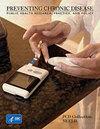Projected Cost Savings of a Community Health Worker Model for Asthma Home Visits in the Massachusetts Pediatric Medicaid Population.
IF 3.9
3区 医学
Q1 PUBLIC, ENVIRONMENTAL & OCCUPATIONAL HEALTH
引用次数: 0
Abstract
Introduction The community health worker-led asthma home visiting model (CHW model) improved asthma outcomes and reduced health care costs among Massachusetts children with asthma. We projected cost savings associated with the expansion of the CHW model among pediatric Massachusetts Medicaid (MassHealth)-eligible patients with uncontrolled asthma (≥2 asthma-related emergency department visits per year). Methods We estimated 2019 costs associated with asthma-related hospitalizations and emergency department visits for MassHealth pediatric patients with uncontrolled asthma who also had 365 days of Medicaid eligibility in 2019. We based estimated cost savings on previously published results from a study of a comparable patient population. Results The projected asthma-related cost savings from expansion of the CHW model were $566.58 per patient, or $774,514.86 total, for the 1,367 MassHealth-eligible children with uncontrolled asthma in our analysis. Conclusion Expansion of the CHW model is an effective way to increase asthma services and reduce Medicaid costs for MassHealth patients, a population made up disproportionately of Black and Hispanic residents with low incomes.马萨诸塞州儿科医疗补助人群哮喘家访中社区保健员模式的预计成本节约。
导言社区保健员主导的哮喘家访模式(CHW 模式)改善了马萨诸塞州哮喘患儿的哮喘治疗效果并降低了医疗费用。我们预测了在符合马萨诸塞州医疗补助(MassHealth)条件的哮喘未得到控制(每年≥2 次哮喘相关急诊就诊)的儿科患者中推广 CHW 模式可节省的相关费用。方法我们估算了 2019 年与哮喘相关的住院和急诊就诊相关的费用,这些患者均为 2019 年获得 365 天医疗补助资格的马萨诸塞州医疗补助(MassHealth)未得到控制的儿科患者。我们以之前公布的一项针对可比患者群体的研究结果为基础,估算了可节省的成本。结果预计 CHW 模式的扩展可为每位患者节省 566.58 美元或 774,514 美元的哮喘相关成本。结论扩展 CHW 模式是增加哮喘服务和降低 MassHealth 患者医疗补助成本的有效方法,而 MassHealth 患者中的低收入黑人和西班牙裔居民比例过高。
本文章由计算机程序翻译,如有差异,请以英文原文为准。
求助全文
约1分钟内获得全文
求助全文
来源期刊

Preventing Chronic Disease
PUBLIC, ENVIRONMENTAL & OCCUPATIONAL HEALTH-
CiteScore
6.70
自引率
3.60%
发文量
74
期刊介绍:
Preventing Chronic Disease (PCD) is a peer-reviewed electronic journal established by the National Center for Chronic Disease Prevention and Health Promotion. The mission of PCD is to promote the open exchange of information and knowledge among researchers, practitioners, policy makers, and others who strive to improve the health of the public through chronic disease prevention. The vision of PCD is to be the premier forum where practitioners and policy makers inform research and researchers help practitioners and policy makers more effectively improve the health of the population. Articles focus on preventing and controlling chronic diseases and conditions, promoting health, and examining the biological, behavioral, physical, and social determinants of health and their impact on quality of life, morbidity, and mortality across the life span.
 求助内容:
求助内容: 应助结果提醒方式:
应助结果提醒方式:


